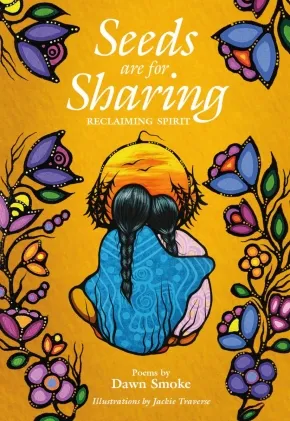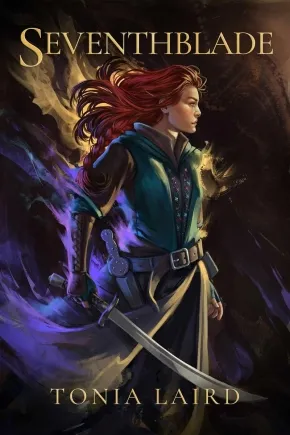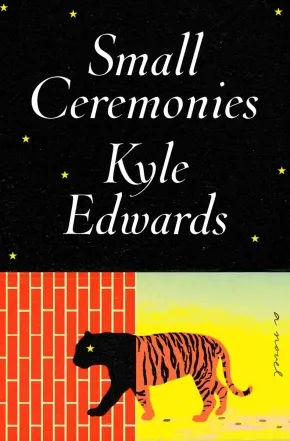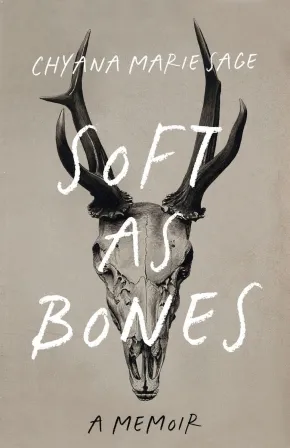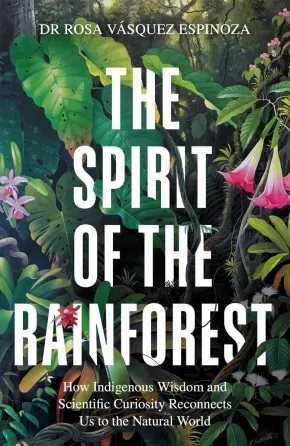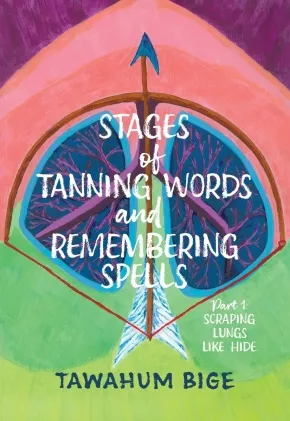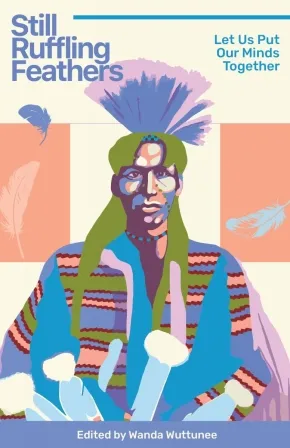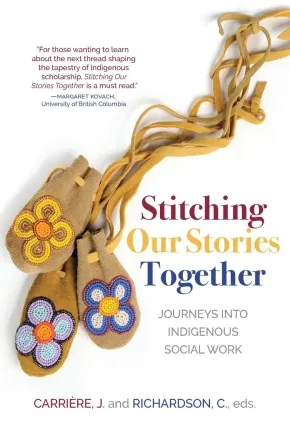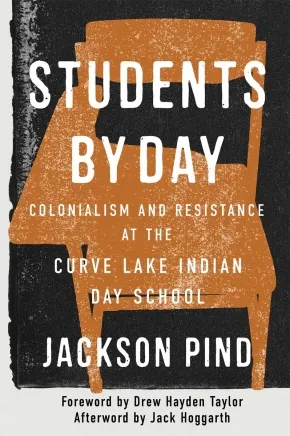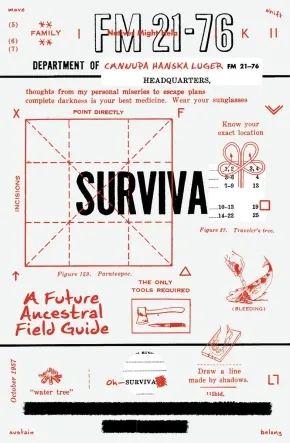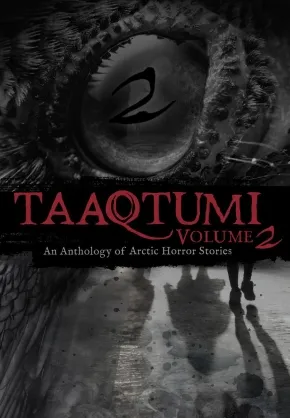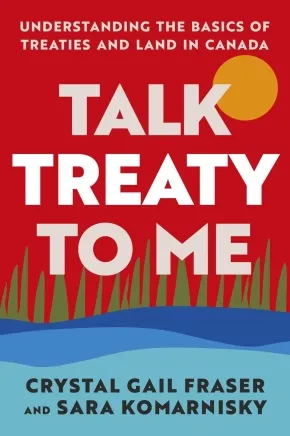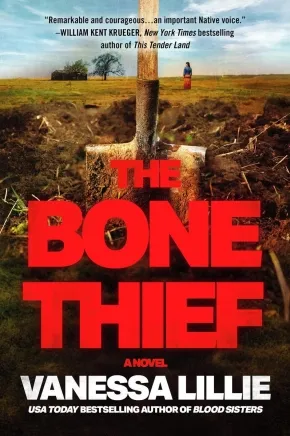
Indigenous Peoples
121
-
135
of
1370 Results;
Sort By
Go To
of 92
Seeds are for Sharing: Reclaiming Spirit
$20.99
Artists:
Format:
Paperback
Text Content Territories:
Indigenous Canadian; First Nations; Anishinaabeg; Ojibway; Haudenosaunee (Iroquois); Kanyen'keha:ka (Mohawk);
Reading Level: N/A
ISBN / Barcode: 9781778540592
Synopsis:
Synopsis:
"Never let anything or anyone stop you from following where your Spirit says it belongs. . ."
Spirit exists in everything on Mother Earth. If we are open to it, Spirit may guide us through even the darkest of moments.
In this genre-defying blend of poetry and story, Ojibway and Mohawk Elder Dawn Smoke shares all that lives within her heart, mind, and soul. As a young girl confronted with the anger and pain of being scooped from her birth family, Dawn bravely discovers her truth and a path towards healing. She is unwavering in her honesty, a protector of Mother Earth, and a fierce advocate against the oppression of Indigenous people.
Reclaiming what was taken is not an easy feat, yet in doing so, Dawn illuminates the Spirit all around us. This striking memoir, told in spoken word, speaks to the devastating realities of colonization and radiates with the resilience found within culture and community.
Additional Information
120 pages | 5.50" x 8.00" | Paperback
Seventhblade
$24.95
Format:
Paperback
Text Content Territories:
Indigenous;
Reading Level: N/A
ISBN / Barcode: 9781770418073
Synopsis:
Synopsis:
For readers of N.K. Jemisin and Rebecca Roanhorse, a fast-paced, anti-colonial action-adventure fantasy that explores twisted power dynamics and the effects of settler colonialism
After the murder of T’Rayles’s adopted son, the infamous warrior and daughter of the Indigenous Ibinnas returns to the colonized city of Seventhblade, ready to tear the streets asunder in search of her son’s killer. T’Rayles must lean into the dangerous power of her inherited sword and ally herself with questionable forces, including the Broken Fangs, an alliance her mother founded, now fallen into greed and corruption, and the immortal Elraiche, a powerful and manipulative deity exiled from a faraway land. Navigating the power shifts in a colonized city on the edge and contending with a deadly new power emerging from within, T’Rayles must risk everything to find the answers, and the justice, she so desperately desires.
Loaded with complex characters and intricately staged action, and set in a fragmented, fascinating world of dangerous magics and cryptic gods, Seventhblade is a masterful new fantasy adventure from a bright, emerging Indigenous voice.
Reviews
“Tonia [Laird] is a powerhouse.” — Katherena Vermette, award-winning author of The Break and The Strangers
“Tonia Laird tells a gripping story of grief, magic, and revenge while exploring the impact of generational trauma on a colonized people. At times brutal, nuanced, and compassionate, Laird writes with confidence and gives us a fantastic hero in T’Rayles.” — Trick Weekes, author of The Palace Job
“At its core, Seventhblade is a story of a mother’s love, her need for justice, and the discovery of her roots. Drawing on her Indigenous heritage, Tonia Laird weaves the tale of T’Rayles, a half-soul with a mysterious past, set in a world where gods roam freely. Deftly written with intricate worldbuilding and vivid characters, Seventhblade is fantasy at its finest ... and I need a sequel!” — Allison Pang, writer of the Abby Sinclair urban fantasy series
Additional Information
376 pages | 5.50" x 8.50" | Paperback
Small Ceremonies: A Novel
$32.00
Format:
Hardcover
Text Content Territories:
Indigenous Canadian;
Reading Level: N/A
ISBN / Barcode: 9780771025617
Synopsis:
Synopsis:
Part coming-of-age novel, part searing examination of a community finding itself, Small Ceremonies is a tantalizing and heartbreaking debut.
“I fear for our friendship, for the day it will end, wondering when that day will be . . .”
Tomahawk Shields (a.k.a. Tommy) and Clinton Whiteway are on the cusp of adulthood, imagining a future rife with possibility and greatness. The two friends play for their high school’s poor-performing hockey team, the Tigers, who learn at the start of the new season that the league wants them out. Their annual goal is now more important than ever: to win their first game in years and break the curse.
As we follow these two Indigenous boys over the course of a year, we are given a panoptic view of Tommy and Clinton’s Winnipeg, where a university student with grand ambitions chooses to bottle her anger when confronted with numerous micro- (and not so micro-) aggressions; an ex-convict must choose between protecting or exploiting his younger brother as he’s dragged deeper into the city’s criminal underbelly; a lonely rink attendant is haunted by the memory of a past lover and contemplates rekindling this old flame; and an aspiring journalist does everything she can to uncover why the league is threatening to remove the Tigers. These are a sampling of the chorus of voices that depicts a community filled with individuals searching for purpose, leading them all to one fateful and tragic night.
Ferociously piercing the heart of an Indigenous city, Kyle Edwards's sparkling debut is a heartbreaking yet humour-flecked portrayal of navigating identity and place, trauma and recovery, and growing up in a land that doesn't love you.
Reviews
“The geographical and familial landscape of the ironically named Whiteway clan yields a subtle and fascinating portrait of growing up Native in Manitoba. The understatement underscores the intensity and contradictions of outgrowing your home and self. This is a truly fine novel.”—Percival Everett, author of James
“Small Ceremonies dropped my jaw with the glittering precision of its detail, and the life-affirming humanity of its characters. Kyle Edwards knows this world of frozen hockey rinks and fishing shacks just as intimately as he knows the warm and broken hearts of this Winnipeg community that he writes about. I haven’t been this excited about a debut in years.”—Michael Christie, author of Greenwood
"Small Ceremonies flattens the grass for us all. A power play of wit, grit, and generational spirit, phenom Kyle Edwards has you rooting for the Tigers when few will. With its scars, scores, and hard-won triumphs, this polyphony of neechies carries us through overtime into glory. A dignified, accomplished, and suave figure-eight of a novel."—Cody Caetano, author of Half-Bads in White Regalia
"In this compelling, multi-voiced first novel, Kyle Edwards carries us north to the landscape of Winnipeg, Manitoba, and into the geography of youth itself. This book—bracing, kaleidoscopic—made me relive those gritty, tender, fragile years before you are fully grown, when you still believe you can do both—stay rooted and fly free."—Danzy Senna, author of Caucasia and Colored Television
"Such a chorus of compelling voices here! I would find myself growing attached to one character only to find the next equally engaging. Edwards is, at once, bracingly honest about and deeply tender towards everyone in this novel. A stunning debut."—Aimee Bender, author of The Butterfly Lampshade
Additional Information
368 pages | 5.50" x 8.25" | Hardcover
Soft as Bones: A Memoir
$26.99
Format:
Paperback
Text Content Territories:
Indigenous Canadian; Métis; First Nations; Cree (Nehiyawak);
Reading Level: N/A
ISBN / Barcode: 9781487013028
Synopsis:
Synopsis:
A poetic memoir as intricately woven as a dreamcatcher about overcoming the pain of generational trauma with the power of traditional healing.
In her deeply affecting memoir, Soft as Bones, Chyana Marie Sage shares the pain of growing up with her father: a crack dealer who went to prison for molesting her older sister. She details the shame and guilt she carried for years after her family's trauma as she went from one dysfunctional relationship to another, from one illegal drug to another. In revisiting her family's history and weaving in the perspectives of her mother and sisters, Chyana examines the legacy of generational abuse, which began with her father's father, who was forcibly removed from his family by the residential schools and Sixties Scoops programs.Yet hers is also a story of hope, as it was the traditions of her people that saved her life. In candid, incisive, and delicate prose, Chyana braids personal narrative with Cree stories and ceremonies, all as a means of healing one small piece of the mosaic that makes up the dark past of colonialism shared by Indigenous people throughout Turtle Island.
Reviews
"Chyana Marie Sage's writing is a gift that gleams with all of its teeth and skin and soft parts of the earth ... A stunning new voice that pushes the boundaries of form, whose stories swirl across time like sweetgrass braids, like tendrils of smoke." — Kinsale Drake, author of The Sky Was Once a Dark Blanket
"A searing, poetic memoir filled with resilience and strength ... for anyone on a journey of reconciling the pain of the past with the hopes for the next generations." — Dallas Goldtooth, writer, actor, and community organizer
"Chyana Marie Sage writes with an unflinching emotional clarity, lyrical prose, and a wisdom well beyond her years." — Tanya Talaga, author of The Knowing
"Soft as Bones moves like a river across vast territories of recovery and reckoning: it moves powerfully and runs deep, with prose that carries many worlds on its shoulders ... Chyana Marie Sage is a truth-teller, and she has given us an incredible gift." — Leslie Jamison, author of Splinters
Additional Information
296 pages | 5.50" x 8.50" | Paperback
Something for the Dark
$19.95
Format:
Paperback
Text Content Territories:
Indigenous Canadian; First Nations; Cree (Nehiyawak);
Reading Level: N/A
ISBN / Barcode: 9781779400888
Synopsis:
Synopsis:
Something for the Dark centres Indigenous knowledge to probe the limits of what we know, confront the unknown, and reckon with our place in the world.
Randy Lundy’s newest collection of poetry—the final in a trilogy that began with Blackbird Song and continued with Field Notes for the Self—turns the poem to our relationships with the land, animals, and people, showing how our failures to see and live by the personhood of all other beings in the world, human and non-, leads inevitably to heartbreak.
As Lundy’s poems accumulate like snow on cedar, his recounting of experiences that transcend language invites the reader to bend their understanding and notice what was once unseen—how a red-winged blackbird clings to a swaying reed, how mist rises after rainfall, how dogs keen and howl, how fingers taste bitter after lighting sage, how hunger smarts, how liquor burns, and how the pain survivors carry is not merely their own.
Reviews
“Such longing! ‘These days I wrestle no angels. I wrestle / with words. And no one is saved.’ writes Randy Lundy. In Something for the Dark, he presents tâpwêwina—truths drawn from the hand dealt and the life lived. ‘Nothing is hidden,’ he suggests, if we take the time to observe from a distance and wait in silence.” — Rita Bouvier, author of a beautiful rebellion
Additional Information
96 pages | 5.51" x 8.50" | Paperback
Spirit of the Rainforest: How Indigenous Wisdom and Scientific Curiosity Reconnects Us to the Natural World
$34.99
Format:
Hardcover
Text Content Territories:
Indigenous South American;
Reading Level: N/A
ISBN / Barcode: 9781856755566
Synopsis:
Synopsis:
A competing title to the bestselling Braiding Sweetgrass - a fascinating insight into the Amazon rainforest from scientist and peruivan-born explorer Dr Rosa Espinoza.
Before you step into the jungle, there are a few things you need to know...
Join scientist Dr Rosa Vasquez Espinoza as she uncovers one of the most unexplored regions on the planet.
Dr Rosa is no stranger to the Amazon. Growing up with the rainforest as her back garden, she learnt the lessons of the rainforest from her grandmother, a native healer in natural medicine. She went on to pursue a classical education in science, gaining a PhD in the US, but has always been pulled back to the heart of the Amazon. As a leading biologist in her field, Rosa continues to explore the region through a unique blend of scientific inquiry and ancient insight.
In this debut, you'll learn about Dr Rosa's journeys in the Amazon: her treacherous encounters with a boiling river, her conservation work with stingless bees, her experience of taking ayahuasca as a natural psychedelic - and all the amazing biodiversity of the rainforest.
At the heart of Rosa's expedition is her passion to combine science with the indigenous knowledge of the Amazon. She shares her experience of learning from the indigenous communities that she visits, and shows what they have to teach us - stretching beyond the realm scientific knowledge. Here Rosa learns the most important lessons in how to reconnect to the natural world - and, in turn, will teach us to do the same.
In this book, Rosa celebrates the richness of Amazonian culture, the wonders of biodiversity, and the enduring spiritual connections between humanity and the natural world.
Additional Information
336 pages | 6.45" x 9.65" | Hardcover
Stages of Tanning Words and Remembering Spells: Part 1: Scraping Lungs Like Hide
$19.95
Format:
Paperback
Text Content Territories:
Indigenous Canadian; First Nations; Dene; Denesuline (Chipewyan); Lutsel K'e Dene First Nation ;
Reading Level: N/A
ISBN / Barcode: 9780889714601
Synopsis:
Synopsis:
In their second poetry collection, Tawahum Bige explores belonging and voice of a Two-Spirit Dene youth.
These poems are a stark plunge—an answer to how voice emerges for a young Two Spirit growing up in so-called “Surrey, BC,” far from his Łutselk'e Dene territories. The fundamental thrum in which vocal cords produce sound to whisper, cry, holler and laugh—these inner workings are made corporeal through moments of growth from childhood to young adulthood to show how the seeds sprouted for someone who needed to learn to express to find their path.
Additional Information
96 pages | 5.50" x 8.00" | 25 colour and b&w photographs | Paperback
Still Ruffling Feathers: Let Us Put Our Minds Together
$24.95
Format:
Paperback
Text Content Territories:
Indigenous Canadian; First Nations; Cree (Nehiyawak); Plains Cree; Red Pheasant Cree Nation;
Reading Level: N/A
ISBN / Barcode: 9781772841183
Synopsis:
Synopsis:
Revisiting the political activism of WIC Wuttunee
William (Bill) Wuttunee was a trailblazing lawyer, a courageous native rights activist; and one of the architects of the process for the Truth and Reconciliation Commission. His 1971 book, Ruffled Feathers: Indians in Canadian Society, decried conditions on reserves and pressed for integration-on Indigenous peoples' own terms-supporting many of the aims of the Trudeau government's 1969 "White Paper." Though controversial at the time, Wuttunee's arguments were rooted in a foundational belief in the strengths of his people and a steadfast rejection of victimhood. In the fifty years that have followed its publication, Ruffled Feathers has been largely forgotten, though ideas that Wuttunee put forth-ending the Indian Act and the reserve system-continue to find space within contemporary Canadian political discourse.
In this volume, editor Wanda Wuttunee gathers a diverse cohort of scholars to engage with her father's ideas and offer their own perspectives on the opportunities and challenges facing Indigenous peoples in Canada, then and now. Favouring discourse over conclusions, Still Ruffling Feathers leads the reader to a nuanced understanding of the ongoing conversations and unresolved issues stemming from the Indian Act and invites us to envision miyo-pimâtisiwin, "the good life."
Reviews"
"Still Ruffling Feathers explores an important area of modern history on Indigenous leadership. The thoughts and ideas expressed by William Wuttunee still have resonance today." - Dr. Brian Caillou, University of Calgary
Educator Information
Table of Contents
Brotherhood by William I.C. Wuttunee
Acknowledgements
Contributors
Introduction by Wakchan (Wanda Wuttunee), Red Pheasant Cree Nation, Saskatchewan
Chapter 1. Reflections on a Legacy--An Eagle Eye Perspective by Wakchan (Wanda Wuttunee), Red Pheasant Cree Nation, Saskatchewan
Chapter 2. Still Ruffling Feathers Too--More than 50 Years Later by Makookins (Xakiji (Chief) Lee Crowchild), Tsuut'ina Nation, Alberta
Chapter 3. William Wuttunee--Ruffling Feathers in "Indian" Time and Space by Thohahoken (Michael Doxtater), Mohawk Turtle Clan Family of Satekariwate, Ontario
Chapter 4. Learning to Straighten Our Ruffled Feathers: An Education by Askîy Pihêsiw (Robert Falcon Ouelette), Red Pheasant Cree Nation, Saskatchewan
Chapter 5. Ruffled Feathers: A Critical Assessment by Bush Doctor (Peter Kulchyski), Bissett, Manitoba
Chapter 6. Final Thoughts--Debating Our Future, Coming to One Mind by David Newhouse, Onandaga, Six Nations of the Grand River, Ontario.
Appendix A: Excerpts from Ruffled Feathers (1971) by William I.C. Wuttunee
Appendix B. Selected Poetry of William I. C. Wuttunee
Appendix C. Discussion Questions Bibliography
Additional Information
204 pages | 5.50" x 8.50" | Paperback
Stitching Our Stories Together: Journeys into Indigenous Social Work
$34.95
Editors:
Format:
Paperback
Text Content Territories:
Indigenous Canadian;
Reading Level: N/A
ISBN / Barcode: 9781779400574
Synopsis:
Synopsis:
A collection of graduate research by Indigenous social work scholars.
Stitching Our Stories Together showcases emerging scholars who, by centering their own nations, communities, and individual realities, demonstrate how Indigenous knowledges can challenge settler ideas and myths around pan-Indigeneity.
This collection is bookended with reflections from the scholars’ thesis supervisors, who describe their philosophy of mentoring and supporting students through an Indigenous lens, and how their pedagogies embrace the significance of relationality in Indigenous worldviews.
Stitching Our Stories Together points toward a future where Indigenous ways of knowing and being take their rightful place in spaces of higher learning and social work practice—a necessary intervention in a discipline that has historically been complicit in colonialist harm.
Reviews
“For those wanting to learn about the next thread shaping the tapestry of Indigenous scholarship, Stitching Our Stories Together is a must read.” —Margaret Kovach, University of British Columbia
“These teachings of Indigenous ways of knowing and being, written by Indigenous graduate students who share their ideas, stories, and life experiences, open the door for new ways of doing within academia, within social work practice, and within broader society.” —Dr. Sheri M. McConnell, Memorial University
“The profound and transformative impact of Indigenous senior scholars uplifting Indigenous graduate students pursuing thesis research is truly remarkable...The intergenerational exchange of knowledge and support creates a powerful legacy, ensuring that the voices and perspectives of Indigenous scholars continue to flourish and inspire future generations.” —Dr. Amanda LaVallee
Educator Information
Table of Contents
Acknowledgements xi
Introduction by Catherine Richardson and Jeannine Carrièrexiii
1. Supervision and Mentoring: Beyond the Destination 1
Jeannine Carrière and Catherine Richardson
PART ONE. EMBEDDING CHILD WELFARE RESEARCH INTO INDIGENOUS METHODOLOGIES
2. Researching Culturally Informed Approaches: Supporting Indigenous Youth Aging Out of Ministry Care 25
Robert Mahikwa
3. A Métis Grandmother’s Knowledge: Stories of Grandmother Teachings and Métis Child Welfare in British Columbia 45
Shelley Lafrance
4. An Inquiry Into the Stories of Indigenous Fathers and Their Paths Into Fatherhood: A Narrative Analysis Conducted With Kwakwaka’wakw Fathers 71
Tanille Johnston
PART TWO. ARTS-BASED KNOWLEDGES AND PRACTICES
5. centring stories by urban indigiqueers/trans/two-spirit people and indigenous women: on practices of decolonization, collective care, and self-care 91
mel lefebvre
6. Stitching Ourselves Back Together: Urban Indigenous Women’s Experience of Reconnecting with Identity through Beadwork 123
Shawna Bowler
7. Reconstituting Indigenous Identities through Portraiture and Storytelling: Reclaiming Representation for Indigenous Women and Two-Spirit People 145
Juliet Mackie
PART THREE. INDIGENOUS BODIES AND MEANING MAKING
8. Dancing My Way Home: Cultural Reclamation Through the Embodiment of the Michif Language 167
Victoria May
9. Researching Through miyo ohpikinâwasowin (Good Child-Rearing): A Framework for Knowledge Emergence and Transmission 203
Lindsay DuPré
10. Fat Bodies in Space: Explorations of an Alternate Narrative 219
N. Katie Webb
Conclusion by Jeannine Carrière and Catherine Richardson239
Epilogue 253
Contributors 257
Additional Information
336 pages | 6.00" x 9.00" | Paperback
Students by Day: Colonialism and Resistance at the Curve Lake Indian Day School
$29.95
Format:
Hardcover
Text Content Territories:
Indigenous Canadian; First Nations; Anishinaabeg; Ojibway; Mississaugas; Curve Lake First Nation;
Reading Level: N/A
ISBN / Barcode: 9780228026044
Synopsis:
Synopsis:
Offering readers a unique history of an Indian Day School and a profile of Anishinaabe resilience.
The atrocities of the residential school system in Canada are amply documented. Less well-known is the history of day schools, which some two hundred thousand Indigenous youth attended.
The Curve Lake Indian Day School operated for over ninety years, from 1899 to 1978. Implementing Indigenous community research practices, Jackson Pind, alongside the Chief and Council of Curve Lake First Nation, conducted a search of the federal archive on operations at the school. Students by Day presents the findings, revealing that the government failed in its fiduciary duty to protect students. Harmful and discriminatory policies forced children to abandon their language and culture and left them subject to many types of abuse. To supplement this documentation, Pind also interviewed survivors of the school, who shared their often difficult testimony. He situates Curve Lake’s development and operations within the wider context of Canadian assimilation policies, noting the lasting impacts on Anishinaabe identity and culture.
Not only recovering the archive, written and oral, but building on files repatriated to the community, Students by Day is a story of Indigenous resilience, activism, and hope in the face of educational injustice.
Reviews
“An incredible achievement. Students by Day is innovative and collaborative, pushing Indigenous historical research forward in ways that will offer real, tangible improvements to communities and individuals.” - Lianne C. Leddy, author of Serpent River Resurgence: Confronting Uranium Mining at Elliot Lake
“Students by Day is an intricate uncovering of day schools’ history, navigating archives and life stories. It sets a gold standard for community-centred research, reminding us of the centrality of love to culture, people, and politics.” - Niigaan Sinclair, author of Wînipêk: Visions of Canada from an Indigenous Centre
“With care, clarity, and accountability, Jackson Pind’s book listens to Curve Lake First Nation and honours survivors’ experiences. Students by Day is not only powerful history; it’s a model for community-based research that serves Indigenous resurgence.” - Crystal Gail Fraser, author of By Strength, We Are Still Here: Indigenous Peoples and Indian Residential Schooling in Inuvik, Northwest Territories
Educator Information
Table of Contents
Figures vii
Foreword: Day Schools xi
Drew Hayden Taylor
Acknowledgments xv
1 Introduction to Place: Growing Up in Michi Saagiig Anishinaabeg Territory 3
2 Researching Indian Day Schools in Canada 15
3 The New England Company and the Creation of the Indian Day School 30
4 Mismanagement and Mistrust: The Methodist Missionary School in Curve Lake 45
5 A Legacy of Neglect: The United Church of Canada’s Indian Day School 86
6 Beyond the Classroom: Educational Philosophies and Opportunities 122
7 Experiencing Indian Day School: Education and Integration 150
8 A Class in Resistance: Curve Lake First Nation’s Fight for Education 173
Afterword 197
Jack Hoggarth
Appendix: Letter of Support from Curve Lake First Nation 201
Notes 203
Index 255
Additional Information
256 pages | 6.00" x 9.00" | 9 photos, 5 drawings | Hardcover
SURVIVA: A Future Ancestral Field Guide
$57.50
Format:
Paperback
Text Content Territories:
Indigenous American;
ISBN / Barcode: 9781961814264
Synopsis:
Synopsis:
An ambitious, world-envisioning work of Indigenous futurism.
Since 2015—through a proliferation of forms including sculpture, regalia, film, photography, poetry, painting, and installation—acclaimed multimedia artist Cannupa Hanska Luger has been weaving together strands of a new myth. Collectively referred to as Future Ancestral Technologies, this sprawling series of interrelated works seeks to reimagine Indigenous life and culture in a postcolonial world where space exploration has reduced and reconfigured the earth’s population.
Part graphic novel, part art book, SURVIVA: A Future Ancestral Field Guide offers readers a view beneath, beyond, and between the lines of Luger's ever-expanding artistic universe. In this ecstatically hybrid work, Luger transforms a 1970s military survival guide through poetic redaction, speculative fiction, and iterative line drawing—deftly surfacing and disrupting the colonial subconscious that haunts this vexed source text. An epic and timely meditation on planetary life in the midst of transformation, SURVIVA boldly presents an earth-based, demilitarized futuredream that foregrounds Indigenous knowledge as critical to humanity’s survival
SURVIVA is the first title from Aora Books, a publishing imprint dedicated to exploring transformational thought and culture that transcends borders, disciplines, and traditions. Rooted in an ethos of polyvocality and planetary consciousness, Aora publishes works that forge bold connections across time, place, ideas, and beings often seen as separate.
Reviews
"SURVIVA offers Indigenous wisdom for a shared future built on ancestral knowledge in radical relation. This is a survival guide like none other." —Candice Hopkins, curator of the Forge Project
"SURVIVA boldly reimagines our conceptions of time and history, challenging our collective narratives and pushing us to rethink the art of survival through a lens of transformation."—Hank Willis Thomas, artist and cofounder of For Freedoms
"Cannupa Hanska Luger has created a wondrous book of survivance, a story to carry in pocket and study at every opportunity. At once a dystopia (earth is near destroyed) and a postcolonial fantasy (the colonizers abandon the planet for good), SURVIVA is a work of artistic brilliance that draws our attention to the simultaneity of ruins and futures. Rich with dreampower and evocation, these pages illustrate the mysteries of space-time, the dissolution of boundaries, and the relational universe described by Indigenous quantum mechanics. Read carefully, SURVIVA has the power to bend time itself, lifting us from past and present into futures innumerable."—Philip J. Deloria, Leverett Saltonstall Professor of History at Harvard University and author of Playing Indian
Additional Information
162 pages | 5.44" x 8.31" | original line drawings & ecopoetic fragments - reminiscent of 1970s diy photocopy culture | Paperback
Surviving the City Teacher Guide: Exploring Identity, Allyship, and Social Action for Meaningful Change in Grades 7-12
$25.95
Format:
Paperback
Text Content Territories:
Indigenous Canadian; First Nations; Anishinaabeg; Cree (Nehiyawak);
ISBN / Barcode: 9781774921401
Synopsis:
Synopsis:
This updated Teacher Guide for Surviving the City is designed to accompany the Surviving the City series of graphic novels written by Tasha Spillett. This guide provides support for teachers to address sensitive topics in the classroom including racism; caregiver illness; the child welfare system; residential schools; and Missing and Murdered Indigenous Women, Girls, and Two-Spirit People. With the release of the third volume of Surviving the City, this guide has been updated to include revisions to the original lessons, two brand-new lessons, as well as up-to-date curriculum correlation charts that match current curriculum outcomes and expectations in Ontario, British Columbia, and Manitoba.
This teacher guide is designed to be a no-prep resource for educators suitable for stand-alone lessons or as a complete unit plan. The lessons in this teacher guide:
- support teachers with clear and concise instructions using the Activate, Acquire, Apply, and Assess (AAAA) format
- guide students in exploring, researching, and sharing the essential themes of the graphic novels
- are infused with Indigenous pedagogical practices
The Teacher Guide for Surviving the City is best suited for use with students in grades 7–12 taking English Language Arts; First Nations, Métis, and Inuit Studies; Global Issues; and similar subjects.
Educator Information
The student books for this work can be found here: Surviving the City Series.
Additional Information
91 pages | 8.50" x 11.00" | Paperback
Taaqtumi 2: An Anthology of Arctic Horror Stories
$22.95
Format:
Paperback
Text Content Territories:
Indigenous Canadian; Inuit;
Grade Levels: 12; University/College;
ISBN / Barcode: 9781772275834
Synopsis:
Synopsis:
This new collection of horror short fiction weaves together contemporary Arctic settings with ancient monsters and mysterious beings that have been said to stalk the tundra for centuries.
Featuring authors from across the Canadian Arctic, this new volume of Taaqtumi—an Inuktitut word that means “In the Dark”—reveals just how horrifying the dark can be.
Featuring new fiction from award-winning authors Aviaq Johnston, Rachel and Sean Qitsualik-Tinsley and Jamesie Fournier, as well as new voices in the genre, this collection is perfect for any horror lover.
Educator & Series Information
Includes stories from Indigenous authors across the Canadian Arctic.
This book is part of the Taaqtumi series.
Additional Information
184 pages | 6.00" x 9.00" | b&w illustrations | Paperback
Talk Treaty to Me: Understanding the Basics of Treaties and Land in Canada
$22.99
Format:
Paperback
Text Content Territories:
Indigenous Canadian;
Reading Level: N/A
ISBN / Barcode: 9781443471169
Synopsis:
Synopsis:
An essential and easy-to-read guide to treaties, Indigenous sovereignty, and land for all Canadians
Treaties cover much of Canada. Some were established thousands of years ago, with land and animals, and others date back to the time when Europeans first arrived in North America. These agreements make it possible for all of us to live, work, play, and profit on these lands. Additionally, treaties have profoundly shaped the relationship between Indigenous and non-Indigenous people. In Talk Treaty to Me, Crystal Gail Fraser and Sara Komarnisky untangle the complexities of treaties and set a path forward for greater understanding of all our roles, rights, and responsibilities. In this accessible, clear, and concise book, they discuss:
· Treaties among and between Indigenous Peoples
· The history of treaty-making between Indigenous Peoples and Britain, then Canada, from the very beginning to the present day
· Concepts like Métis scrip, modern land claims, Indigenous sovereignty, and unceded territory
· The (dis)honouring of treaties and the role of Canadian settler colonialism
· How the creation of Canadian borders interrupts Indigenous sovereignty and nationhood
· Important insights from gendered and queer perspectives on treaty and land
· The politics of land acknowledgements
· Reconciliation and Land Back movements
And more.
With a quick-reference timeline, maps, and black-and-white photographs throughout, Talk Treaty to Me concludes with a call to action and specific, tangible steps that all of us can take every day to support reconciliation.
Additional Information
256 pages | 5.25" x 8.00" | 40 b&w photos, spot illustrations & maps | Paperback
The Bone Thief
$39.99
Format:
Hardcover
Text Content Territories:
Indigenous American;
Reading Level: N/A
ISBN / Barcode: 9780593550144
Synopsis:
Synopsis:
When a Native teenager vanishes from her small town—a place with dark ties to an elite historical society—archaeologist Syd Walker is called to investigate...from bestselling author Vanessa Lillie.
In the hours before dawn at a local summer camp, Bureau of Indian Affairs archaeologist Syd Walker receives an alarming call: newly discovered skeletal remains have been stolen. Not only have bones gone missing, but a Native teen girl has disappeared near the camp, and law enforcement dismisses her family's fears.
As Syd investigates both crimes, she's drawn into a world of privileged campers and their wealthy parents—most of them members of the Founders Society, an exclusive club whose members trace their lineage to the first colonists and claim ancestral rights to the land, despite fierce objections from the local tribal community. And it's not the first time something—or someone—has gone missing from the camp.
The deeper Syd digs, the more she realizes these aren't isolated incidents. A pattern of disappearances stretches back generations, all leading to the Founders Society's doorstep. But exposing the truth means confronting not just the town's most powerful families, but also a legacy of violence that refuses to stay buried.
From the national bestselling author of Blood Sisters (a Washington Post Best Mystery of the Year and Target Book Club pick) comes a new Syd Walker novel that proves the sins of the past are destined to repeat until the truth is finally unearthed.
Additional Information
368 pages | 6.00" x 9.00" | Hardcover
Sort By
Go To
of 92

